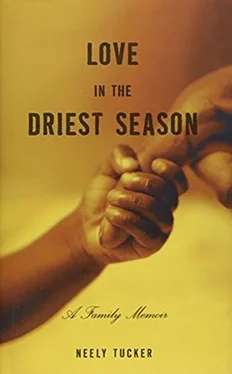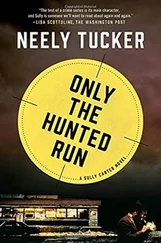As more orphans came in but more money did not, Mesikano became the de facto fund-raiser. She got help from a local Rotary club and a handful of Western aid agencies, most notably from the Canadian division of World Vision, the U.S.-based Christian charity, and the Qantas Cabin Crew Team, volunteers from the Australian airline.
The orphanage appeared modern and clean, for Mesikano and her staff worked hard. But there was only so much to be done with three dimes a day per child. Flies settled on the children, food, and dishes. The in-house clinic had shut down for lack of medicine. Diapers were old washcloths folded into triangles. Food was cornmeal mush and a lumpy porridge. Most of the fifteen to twenty infants in the ward at any one time had chronic diarrhea. Because many of the workers had little training in hygiene or lacked the proper sanitary materials, diapers were not properly disinfected before being put on another infant, allowing bacteria and disease to slink from child to child.
In January 1998, a newborn named Memory Chinyanga was sent from the orphanage to the hospital. She had not been well, though the workers at the orphanage could not list any specific illness. She died a few days later. The listed cause of death was dehydration. As was the standard procedure, no one at the orphanage saw her again. Her corpse would have been taken to the city’s overburdened morgue, eventually wrapped in a white sheet, and put in a wooden coffin. A truck would have taken her to a potter’s field on the outside of town. Her corpse would have been lowered into the red dirt soil. Prison inmates would shovel soil on top of her coffin until she lay under a rounded lump of earth.
A few days after Memory died, an infant a few cribs over was also sent to the hospital. Her name was Tatenda Jeselant (her first name means “we give thanks”). She had chronic diarrhea and was vomiting all day. She died two days later.
The next week, the workers called for a van to rush young Godfrey Muparutsa, not yet two years old, to the hospital. He never came back. The doctors said he died of pneumonia, a rather elastic term used to connote any inflammation of the lungs or to note they had become filled with fluid. Was its origin a virus? Bacterium? No one could say. There were no autopsies performed. There were no inquiries as to how three children in a state-run orphanage died in four weeks. There were no newspaper headlines, no staff shake-ups, and no change in procedure, for AIDS had rendered this scenario routine.
The calendar turned to February, and an infant named Shingirai Nyamayaro was brought in by social welfare officers. She had been abandoned, origins unknown. She developed diarrhea, which, because the orphanage could not afford rehydration packets or antidiarrhea medications, could not be stopped. She became dehydrated and died after a very short stay in the hospital. Then Munashe Tsekete fell ill. His breathing was raspy. He coughed a lot. They took him to the hospital, where he stopped breathing altogether. Five Chinyaradzo infants or toddlers were dead in eight weeks. Munashe’s official cause of death was listed as “difficulties in breathing.”
Joe Bhebbe, another infant, went a few weeks later too.
A month passed, and so did the short lives of Frasia Chateuka, who died of pneumonia, and Ashley Mhlanga, who “could not breathe.”
Early one evening in the dry season of 1998, several weeks before we first encountered the orphanage, a van arrived. Darkness was falling as the social welfare officer walked in, calling for Mesikano. He was holding the infant Constance had found. The clinic in the rural area had no place to keep her, he explained, so the police officers had driven her into Harare. The girl-child was squalling to high heaven.
“She still had blood on her, they hadn’t cleaned her up,” Mesikano would later remember. “She had a clip on her umbilical cord, a stump. But she looked healthy. She had nice black hair, very full. She was actually sort of pink and plump.”
She and a couple of the other women set to work cleaning the child. They soaked her in a small tub of soap and warm water, washing off the blood and dirt. They put antibiotic cream on the ear wounds. She had a small, fleshy stump on the outer edge of her left hand, a sixth finger. They looped a thread around it, pulled in opposite directions, and popped it off. They put cream over that, too. Then they looked over her body and facial features in an attempt to guess the new child’s ethnic heritage, a popular orphanage pastime.
They could rule out that she was Shona, the nation’s largest ethnic group. She lacked the deep black skin and broad facial structure for that. Nor was she a mixture of black and white; she was much too dark to be biracial. Someone looked at her burnt-tan complexion and her deep-set eyes and suggested she was from Mozambique, the country to the east. Then again, someone else said, she looked almost like the Ndebele, the nation’s second largest ethnic group, cousins of the Zulu peoples of South Africa. But that downy hair on the back of her ears-didn’t Indian babies have that? Perhaps, but then there was the puzzle of her small, rather flat nose.
Mesikano finally laughed and gave up the game.
“She is a child of Africa,” she said. “That much we know.”
It was up to her as matron to name the new children. This was a great power, of course, and she did not take it lightly. She wanted something pretty, for the little girl now sleeping peacefully in her arms was a thing of beauty. She finally settled on Chipo, a popular girl’s name in the region. It translates from Shona as “gift.”
“I wanted her to have a pretty African name, something she would be proud of all her life,” Mesikano would later say, explaining her name selection process. “I wanted something to remind her of how special she is, and the circumstances of how she came to be. She seemed a gift of the land itself.”
A worker opened the home’s daily medical chart, where they kept a log of each child’s health and condition. She wrote “Chipo” on a line of the ledger, putting a star next to her name. “New admission. 3.1 kilos (6.8 pounds). Brought in by social welfare officers. Wound on ear but the baby looks healthy.”
The entries in the log read something like a status report of the ward. It showed that Chipo was one of fourteen infants, nine crawlers, and thirty-one toddlers in a three-room ward. Of the fourteen infants, six were in bad shape.
Caroline Razo was “coughing and crying in the night. She is severely wasted,” the log read. Tinashe, whose last name was not recorded, had diarrhea and was vomiting. “Keep an eye on him,” the nightly report noted. An infant named Gladys had some sort of unknown fluid oozing from her ears. Ester was on antibiotics and Tatenda needed amoxicillin, which, the log noted, they did not have.
The next day, three infants were rushed to Harare Hospital.
Caroline was gasping for breath by this point, desperately crying, waving her arms to and fro. Then she stopped gasping and died in the van while they were still in traffic. Tinashe was admitted minutes later, for similar difficulties in breathing. Yemurai had an ugly knot on her right arm.
For her part, the girl-child named Chipo was placed in the second crib to the right of the entrance. A bright yellow note card was put above her crib, noting her name, her date of birth, and the day she was brought in. Workers scarcely had time to pick her up, though, because the week after Caroline died, Collins Murehwa began vomiting, over and over again, until he was spitting blood and not much else. He was taken to the hospital, where they could do nothing for him. He vomited until he died. Clara Mlambo didn’t last much longer; her tiny body withered and dehydrated until her lungs seemed to collapse and her heart stopped. Sandra Mahohoma didn’t have a chance, coughing and gasping day by day until her strength left her.
Читать дальше











